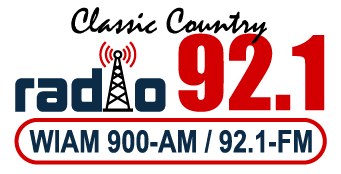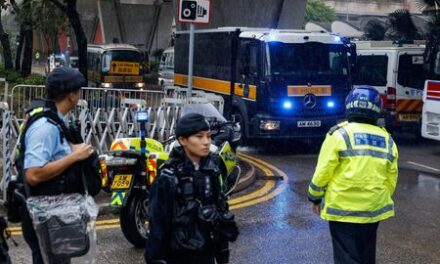This article is from: srnnews.com
BEIRUT (AP) — After almost a year of trading fire, Israel and the Lebanese militant group Hezbollah are now engaged in ferocious confrontations that threaten to turn into a full-blown war.
Israel faces a much more formidable foe in Hezbollah than it faced in Hamas in the Gaza Strip. Many consider the Iran-backed group the strongest paramilitary force in the region — but the group also has political and social wings with considerable power in Lebanon.
Hezbollah leader Hassan Nasrallah has warned Israel that his group has new weapons and capabilities, and it has published surveillance drone footage taken deep inside northern Israel that showed the port of Haifa and other sites far from the Lebanon-Israel border. In the past few days, it has struck deeper into Israel than at any time in the past year.
Founded in 1982 during Lebanon’s civil war, Hezbollah was initially devoted to ending Israel’s occupation of southern Lebanon. It achieved that in 2000 following a long war of attrition that eventually forced Israel to withdraw. But it has continued its battle and seeks Israel’s destruction.
Shiite Muslim Hezbollah is part of a collection of Iranian-backed factions and governments known as the Axis of Resistance. It was the first group that Iran supported and used as a way to export its brand of political Islamism.
In addition to being an armed group, Hezbollah is also a political party with lawmakers in the Lebanese parliament and has had representatives in most Lebanese governments for decades. It also provides extensive social services, including running schools and health clinics, in southern Lebanon and other parts of the country where it has a strong presence.
In its early days, the group attacked U.S. interests, causing Washington to designate it a terrorist organization. Those attacks included taking U.S. hostages in Beirut and the infamous 1983 truck bombing of a Marine Corps barracks in Beirut that killed 241 American service members.
“Iran’s support has helped Hezbollah consolidate its position as Lebanon’s most powerful political actor as well as the most-equipped military actor supported by Iran in the whole of the Middle East,” said Lina Khatib, the director of the SOAS Middle East Institute in London.
In 2006, Hezbollah fighters ambushed an Israeli patrol and took two Israeli soldiers hostage in a cross-border raid. That sparked a monthlong war between Hezbollah and Israel that ended in a draw, but Israeli bombardment wreaked widespread destruction in southern Lebanon.
Israel’s objective was eliminating Hezbollah, but the Lebanese group came out stronger and became a key military and political power on Israel’s northern border.
Domestic opponents have criticized Hezbollah for maintaining its arsenal and for coming to dominate the government. Hezbollah’s reputation also suffered when it briefly seized a section of Beirut in May 2008 after the Lebanese government took measures against its private telecommunications network.
Hezbollah is the Arab world’s most significant paramilitary force with a robust organizational structure as well as a sizeable arsenal. It claims to have some 100,000 fighters
Hezbollah’s military capabilities have surged over the years, and it has played a key role in the Syrian civil war, helping keep President Bashar Assad in power there. It has also helped train Iran-backed militias in Syria and Iraq, as well as Yemen’s Houthi rebels.
Israel estimates Hezbollah has some 150,000 rockets and missiles, including guided missiles and long-range projectiles capable of striking anywhere in Israel.
Throughout its latest conflict with Israel, Hezbollah has gradually introduced new weapons to its arsenal.
While Hezbollah initially began launching anti-tank missiles and rockets, it eventually introduced explosive drones and surface-to-air missiles for the first time. Nasrallah said the drones are locally manufactured, and they have many at their disposal.
The group sustained a severe blow last week, when thousands of communications devices, used mainly by its members, exploded in different parts of Lebanon, killing 39 and wounding nearly 3,000, many of them civilians. The attack — an embarrassing breach of Hezbollah’s supply chain — is widely blamed on Israel.
Israel has recently also assassinated several of the group’s senior leaders, including a top military commander.
Born in 1960 into a poor Shiite family in the Beirut suburb of Bourj Hammoud and later displaced to south Lebanon, Nasrallah studied theology and joined the Amal movement, a Shiite political and paramilitary organization, before becoming one of Hezbollah’s founders.
He became Hezbollah’s leader in 1992 after his predecessor was killed in an Israeli strike.
Idolized by many for presiding over Israel’s withdrawal from the south and leading the 2006 war, his image appears on billboards and on gadgets in souvenir shops in Lebanon, Syria and other countries across the Arab world. But he also faces opposition among Lebanese who accuse him of tying their country’s fate to Iran.
Nasrallah is also considered to be pragmatic, able to make political compromises.
He has lived in hiding for years, fearing Israeli assassination, and delivers his speeches from undisclosed locations.
Brought to you by www.srnnews.com




















